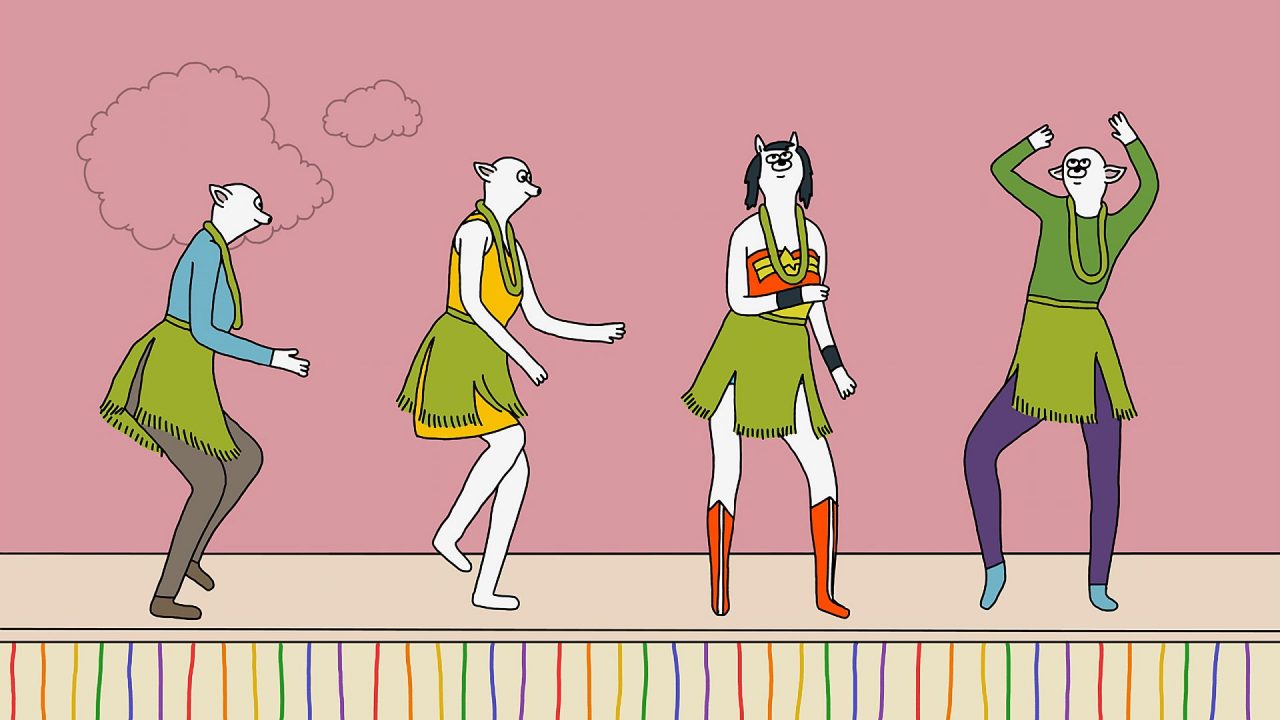
Mini-Lesson for I Like Girls
Mini-Lesson for I Like Girls
Mini-Lesson for I Like Girls: Mapping Queer desire
Theme: Inclusion
Age: 12-14
I Like Girls, Diane Obomsawin, provided by the National Film Board of Canada
Key words/topic: Identity building, sexual identity, inclusion, homosexuality, lesbian, gay, first attraction, first-hand account, tolerance, empathy, LGBTQ, episodic memory
Activity 1) Tweet or judgement call
This teen’s mother seems very at ease with her daughter’s sexual identity. How is this openness proof of empathy? In 140 characters and using at least one hashtag, summarize the important role of the family in adolescent identity building.
Or
The prospect of coming out to one’s parents can torment teens for years. Even though some parents might suspect that their child is gay, the subject is often just simply avoided. What would you recommend to a friend who’s ready to tell thier parents? Please justify your answer.
As a teacher, you can use the examples below to create a discussion:
- Talk about something in the news or something that you recently read as a way to bring up the subject.
- Talk to your siblings before announcing it to your parents.
- Talk about it to just one parent first.
- Ask someone in the LGBTQ community for advice.
Go Deeper
It’s hard to predict how parents will react to the coming out. Teens may decide to tell their parents or not based on how the parents interact with other members of the LGBTQ community and on how they talk about gay people. Choosing your words wisely and role playing may prevent the message from being perceived as bad news and reassure the parents that their child is the same person as before.
Activity 2) Open-ended question
Using animals to illustrate intimate first-person accounts creates a sense of distance. How did this distancing technique make it easier for you to deal with this intimidating subject? Discuss the filmmaker’s creative choice, noting how it affected your perception of what it’s like to be gay.
Go Deeper
When we take a step back from our beliefs, opinions, convictions and prejudices, we’re often able to develop our critical-thinking skills and bring a different perspective to ideas that have been influenced by our environment or culture. What knowledge, opinions, convictions and prejudices have influenced your perception of sexual orientation?
Activity 3) In-class activity
Create a photomontage of the defining moments in your personal life. How are these moments similar and how are they different? What criteria did you use to choose these moments, and why are these moments memorable for you?
Go Deeper
In psychology, episodic memory is sometimes also called autobiographical memory because it helps to build an individual’s history and personal identity. Beyond remembering a place, a date or an event, this type of memory is mainly characterized by the memory of one’s emotional state at a specific point in time. This means that the most memorable moments in our lives are very often moments of emotional shock or upset that can be both positive and negative. Thanks to our episodic memory, we never forget our first day at school, the loss of a loved one, or our first intimate relationship.
Pour lire cet article en français, cliquez ici.
Discover more Mini-Lessons | Watch educational films on NFB Education | Watch educational playlists on NFB Education | Follow NFB Education on Facebook | Follow NFB Education on Pinterest | Subscribe to the NFB Education Newsletter



